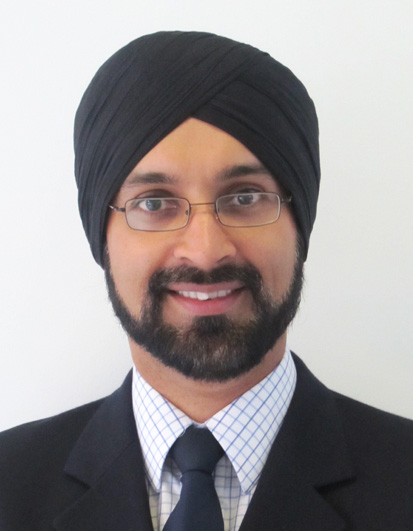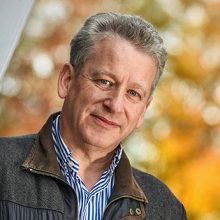Clinical and Biomedical Co-Investigators
Waljit Dhillo

Professor Waljit Dhillo is a Professor in Endocrinology & Metabolism, Consultant Endocrinologist and an NIHR Research Professor. He is Head of the Section Endocrinology and Investigative Medicine & Head of Division of Diabetes, Endocrinology and Metabolism at Imperial College London. He is also Director of Research for the Division of Medicine & Integrated Care at Imperial College Healthcare NHS Trust.
He completed his medical training at St Bartholomew’s Hospital Medical School, University of London in 1994. During this time he also completed an Intercalated BSc in Biochemistry (awarded First Class Honours) funded by the Medical Research Council. He then completed his general medical training in London Hospitals. In 1997 he joined the North West Thames Rotation in Diabetes and Endocrinology as a Specialist Registrar. During this time he completed a PhD on the area of novel neuropeptides regulating appetite as a Wellcome Trust Clinical Training Fellow at Imperial College with Professor Sir Steve Bloom. In 2004 he was awarded a National Institute for Health Research (NIHR) Clinician Scientist Fellowship and appointed Clinical Senior Lecturer & Consultant in Diabetes & Endocrinology at Imperial College London. Following this he was awarded an NIHR Career Development Fellowship and promoted to Reader in 2009. In 2011 he was promoted to Professor in Endocrinology & Metabolism. In 2015 Professor Dhillo was awarded a prestigious NIHR Research Professorship.
Professor Dhillo’s research investigates novel aspects of endocrine control of obesity and reproductive function.
Neil Gow

Professor Neil Gow is Deputy Vice-Chancellor for Research and Impact and Professor of Microbiology at the University of Exeter. Professor Gow was appointed in September 2018.
He is a graduate of the University of Edinburgh where he obtained his Bachelors degree in Microbiology. Professor Gow went on to receive his PhD in 1982 from the University of Aberdeen, followed by a period of postdoctoral research at the National Jewish Hospital for Immunology and Respiratory Medicine and University of Colorado, Denver, USA. He was appointed as a lecturer to the University of Aberdeen and received a personal Chair in 1995. At the University of Aberdeen Professor Gow held various senior positions including Head of Microbiology Research Programme, 2002-2011, Director of Research and Commercialisation, College of Life Sciences and Medicine, 2011-2015, Director of the Wellcome Trust Strategic Award in Medical Mycology and Fungal Immunology and Co-Director, MRC Centre for Medical Mycology, 2017-2018. He is a Fellow of the Royal Society, the Academy of Medical Sciences, Royal Society of Edinburgh and American Academy of Microbiology and has acted as President of three major international societies of mycology and microbiology.
As Deputy Vice-Chancellor for Research and Impact, Professor Gow oversees a total research portfolio of £299 million and leads the research vision and strategy for the University.
His overarching responsibilities include our preparation and submission for the Research Excellence Framework in 2021; interdisciplinary institutes, including the Environment and Sustainability Institute and the Living System Institute, and the development of our Global Systems Institute and Data Science and Artificial Intelligence Institute; strategic leadership of our Doctoral College, the University Ethics Committee and the Research and Impact Strategy Management Group; and ensuring our research is utilised and impacts positively on the wider world.
Professor Gow represents the University externally via a number of research-related groups including the EU Advisory Group for the Russell Group of Universities and GW4, our regional alliance of the Universities of Bristol, Bath, Cardiff and Exeter.
Andrew Hattersley
Prof Andrew Hattersley FRS is a clinical scientist, who is distinguished for his contributions to the understanding of the genetics of diabetes and the application of that knowledge to clinical practice. He became Gillings Chair in Precision Medicine in 2015 and leads the Precision medicine initiative in Exeter working with both scientific and clinical colleagues.
He and Prof Sian Ellard set up and currently head the premier international research team working on monogenic diabetes and has played a major role in the UK research effort into the genetics of type 2 diabetes. He continues to work as a consultant physician in diabetes while at the same time leading a large research team. His research combines state-of-the-art molecular genetics with physiological and clinical investigations in patients. He uses the accidents of nature that cause monogenic diabetes to understand the critical role of the gene product in man, in a similar fashion to many laboratory scientists who study knockout animals. A key theme of his approach is that his scientific discoveries are rapidly and effectively translated into improvements in clinical care.
